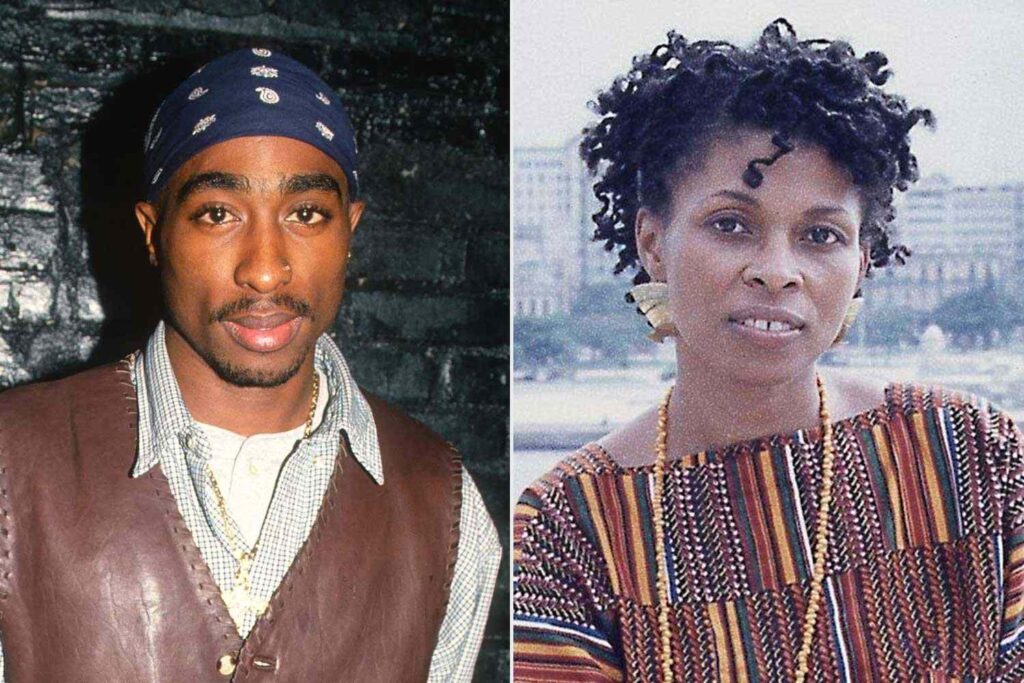NEED TO KNOW
Tupac Shakur’s godmother, Assata Shakur, died at age 78 on Sept. 25.
News of Assata’s death was first shared by her daughter Kakuya on Facebook. “At approximately 1:15 PM on September 25th, my mother, Assata Shakur, took her last earthly breath. Words cannot describe the depth of loss that I am feeling at this time,” she wrote.
Kakuya continued, “I want to thank you for your loving prayers that continue to anchor me in the strength that I need in this moment. My spirit is overflowing in unison with all of you who are grieving with me at this time.”
Assata died in Cuba, where she received political asylum from Fidel Castro after fleeing the United States following a conviction for taking part in the 1973 murder of a New Jersey state police officer, per The New York Times, CNN and ABC.
The New York Times also reported that news of Assata’s death was confirmed by Cuba’s Ministry of Foreign Affairs, which they noted did not specify a singular cause of death, citing only “health conditions and advanced age.”
Raymond Boyd/Getty
According to ABC and The New York Times, Assata, born JoAnne Deborah Byron and also known as Joanne Chesimard, was a member of the Black Liberation Army, where she was convicted of taking part in the murder of Trooper Werner Foerster.
In May 1973, Assata and two other Black Liberation Army members were pulled over on the New Jersey Turnpike by Foerster and another officer. A confrontation ensued, and a shooting followed, leaving Foerster, who was 34 at the time, dead. Assata also sustained a gunshot wound in her left shoulder as well as underneath her right arm.
Assata was subsequently arrested, charged with and convicted of first-degree murder, but ultimately escaped prison in 1979 with the help of fellow Black Liberation Army members and went off the grid, re-emerging in Cuba in 1984, where Castro granted her asylum, per CNN.
She remained in Cuba for the rest of her life, with authorities in New Jersey giving her a permanent place on the state police’s most wanted list and continually seeking to extradite her to serve her sentence, spending over 4 decades in pursuit, according to ABC.
In 1987, Assata released an autobiography simply titled Assata, which was subsequently reissued in 2001.
Never miss a story — sign up for PEOPLE’s free daily newsletter to stay up-to-date on the best of what PEOPLE has to offer, from celebrity news to compelling human interest stories.
Frank Hurley/NY Daily News Archive via Getty
As CNN noted, Assata became the first woman on the FBI’s most wanted terrorists list in 2013, with the agency and the New Jersey State Attorney General increasing the reward for her capture to $2 million at the time.
Despite her conviction, Assata maintained her innocence in the murder of Foerster, claiming she was not the person who held the gun or pulled the trigger, per The New York Times. The publication also noted that despite there being no conclusive evidence that Assata was directly to blame for the death of Foerster, New Jersey law stated that everyone involved was equally responsible for the murder.
In the years following her conviction, prison break and asylum-seeking in Cuba, Assata became somewhat of a folk hero in certain circles, particularly in the hip hop community. She has since been name-dropped and referenced in lyrics by the likes of Public Enemy, Digable Planets, X-Clan, Paris and Common.
Assata’s survivors include Kakuya, whose father is Fred Hilton, according to The New York Times.

